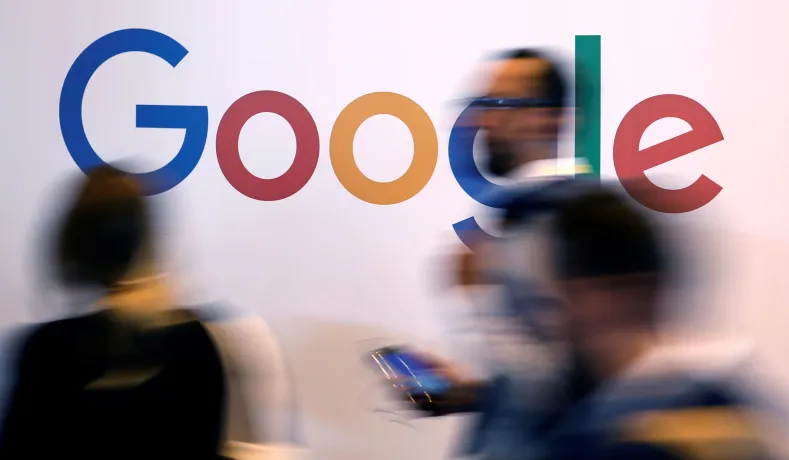
OP-ED
The Google Antitrust Case’s Toxic Mix of Progressivism and Protectionism

The Department of Justice’s move against Google rests on some familiarly flawed logic.
By Robert H. Bork Jr.
October 31st, 2023
Now that the Justice Department has rested its antitrust case against Google before federal judge Amit Mehta, I can’t help but feel nostalgic.
Almost a dozen years ago I assisted my father, Judge Robert Bork, in completing his part of a paper written with law and economics professor Gregory Sidak that defended Google from mounting accusations. My father was ailing then. His paper would turn out to be the last act of a brilliant career.
The charges against Google have since shifted. In 2012, it was claimed that the search engine’s algorithms harmed consumers by making Google the “gateway to the internet.” The Justice Department today is focusing on Google’s payment of billions of dollars for placement as the default browser on Apple phones. The optics of this are a bit strange, given the fierce smartphone competition between Apple’s iPhone, which uses the proprietary iOS operating system, and the many devices that use Google’s Android operating system.
A comparison of those earlier investigations with the current case throws into stark relief something larger than new facts — elements that have since corroded the quality of antitrust thinking.
The first element is progressive ideology, which seeks to jettison the welfare of consumers as the guiding principle in antitrust. It is true that the Google case began under President Trump, but that seems to have been a misuse of the law for the sake of personal pique. Former attorney general William Barr presided over a failed attempt to prevent AT&T from acquiring Time Warner, which according to many media reports was based on the president’s grudge against Time Warner–owned CNN. Under President Biden, both the Department of Justice Antitrust Division and the Federal Trade Commission have fallen in thrall not to personal agendas but to antitrust ideologues who want to expand enforcement beyond impacts on consumers to a wide array of harms that can include protecting less efficient competitors.
Despite Justice’s arguments, I find it fairly easy to switch from Google’s default Chrome browser to Bing or DuckDuckGo on my iPhone. The early returns on Europe’s Digital Markets Act, which mandates that smartphones present consumers with choices of browsers on their devices, show that most consumers still choose Chrome. One thing is for sure: If the court kills the Google–Apple partnership, the loss of Google’s subsidy will cause the price of an iPhone to rise. It’s hard for me to see how consumers can benefit from that.
Another new element in antitrust is protectionism.
The European Union is waging a relentless assault on Alphabet’s Google, imposing more than $8.8 billion in fines for purported legal infractions. Now EU antitrust enforcer Margrethe Vestager wants to break up Google’s ad business. Her actions against Google, but also against Apple, Amazon, Facebook, and Qualcomm, have a scent of anti-American protectionism. The mystery is why so many senior officials in the Biden administration cooperate with Europe’s protectionist agenda to degrade America’s lead in technology.
These new elements of progressivism and protectionism characterize a new landscape for antitrust. Google’s defense, however, is much the same as it was eleven years ago.
My father argued that Google’s ability to attract advertisers rests on its usefulness to consumers. Google thus has a built-in incentive to not act in anticompetitive ways. He wrote: “Competitive discipline is far more effective than any antitrust decree.”
Testimony before Judge Mehta from advertising and marketing executives who live or die by making the right choices in search reinforced this point. Advertisers testified that they value the flexibility offered by Google, which doesn’t require up-front money or penalize advertisers for pulling a project. Google’s pay-per-click transparency also makes it a superior option to the traditional bottle-in-the-ocean marketing strategy.
An executive for JPMorgan Chase testified that, being in a highly regulated industry, she values working with social-media companies that are committed to protecting customer privacy. This was true of Google even after the company elevated its privacy protections at the expense of limiting the data available to advertisers like her.
Others reminded the judge that advertisers, as well as consumers, are just one click away from going with a competitor. An executive from Home Depot was asked, “Looking at a single campaign, how often do you adjust your paid search budget between Google and Bing?” He said that he did so on a “daily basis.”
In testimony, it became clear that the traditional “funnel” for advertisers to induct new customers crosses social media. Testimony showed that advertisers rely on Facebook, TikTok, and Amazon as key marketing channels. More competition is coming as ChatGPT transforms search and advertising in ways we cannot yet predict.
As Judge Bork wrote in 2012, “There is no coherent case for monopolization because a search engine, like Google, is free to consumers and they can switch to an alternative search engine with a click.”
That was true then and is true now. But it may not matter, given antitrust’s toxic combination of progressivism and protectionism.
Originally published at the National Review.
